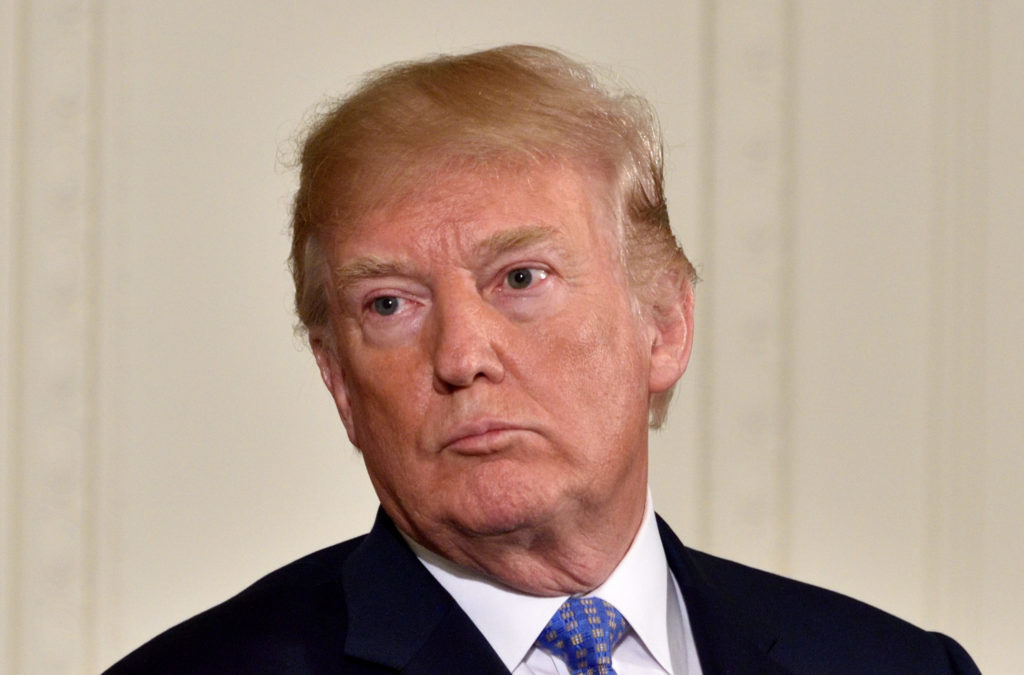Donald Trump’s disqualification

The so-called “Goldwater rule” comes from Section 7 of the American Psychiatric Association’s Principles of Medical Ethics. It requires in summary that psychiatrists refrain from diagnosing public figures from afar. The idea is that, however useful their insights may be, they lack the consent, and precision that only an in-person diagnosis can provide. The obvious catch-22 is, once they have personally diagnosed the public figure in question, psychiatrists are then bound by the rules of confidentiality.
Even so, shortly after Trump became president, in April 2017, psychiatrist Brandy X Lee hosted a meeting at Yale University medical school to discuss the ethics of speaking about the dangers of Donald Trump. The assembled psychiatrists decided they had a “duty to warn.” Though that duty has been occasionally discharged ever since by qualified medical professionals, it has been done so with a kind of fearful and cautious reluctance, frequently loaded down with caveats and qualifications. They still feel they are limited by such ethical constraints as the Goldwater rule.
Now, I am not a psychiatrist, of course, but it seems to me that the kind of pathologies that Donald Trump exhibits are precisely the kind that resist up-close examination. I know this from personal experience with a narcissist, who actually agreed to submit to such an examination. Those of you who know narcissists will not be surprised to learn that my narcissist treated the interview as a game, an opportunity to demonstrate how much smarter he was than everybody else, especially the examining psychiatrist.
No, people like Donald Trump are best diagnosed from afar. The narcissist is at his most revealing when seen in the wild, as it were. He is less self conscious and more revealingly arrogant. He is less likely to try to try to hide his narcissism.
But Trump has gone beyond mere narcissism and descended into cognitive decline. He exhibits traits that are familiar to medical professionals, and those traits are alarming indeed.
Psychiatrist Richard A Friedmanagrees, and has said so in his recent article in The Atlantic. Friedman clearly believes that not only is Trump profoundly mentally ill, he is in rapid cognitive decline. Even so, he offers the canonical disclaimer. “Just to be clear: Although I am a psychiatrist, I am not offering any specific medical diagnoses for any public figure.”
Friedman offered his thumbnail non-diagnosis based on the recent debate Trump had with Kamala Harris on September 10. With the usual caveats dispensed with, Friedman notes, “Evading the question is an age-old debate-winning tactic. But Trump’s response seems to go beyond evasion. It is both tangential, in that it is completely irrelevant to the question, and circumstantial, in that it is rambling and never gets to a point. Circumstantial and tangential speech can indicate a fundamental problem with an underlying cognitive process, such as logical and goal-oriented thinking.”
Friedman also gives a clinical name for Trump’s constant repetition of words and phrases he uses to describe his long catalogue of grievances. He calls it “perseveration,” which is “known to be correlated with a variety of clinical disorders, including those involving a loss of cognitive reserve. People tend to stick to familiar topics over and over when they experience an impairment in cognitive functioning — for instance, in short-term memory.” This is why elderly people often repeat themselves. Trump is simply exhibiting mental impairment common to advanced age.
These are alarming developments for ordinary persons in ordinary circumstances. They are disqualifying in someone who would presume to be president of the United States, who would dare to think themselves fit to handle the nation’s nuclear codes. The number of ways that Trump is unfit to be president are simply too long for me to list them here. In any case, I’m likely to forget many more. The list really is that long.
But chief on the list has to be Trump’s own brain as the quintessential disqualifier. If you throw out all the other reasons why he’s unqualified to serve in high office, and adduce only his stark and shocking cognitive decline, he is still completely unfit to be president. His own brain disqualifies him. There ought to be a way to prevent such people from even applying for the job. And, as ever, ladies and gentlemen, brothers and sisters, comrades and friends, stay safe.

Robert Harrington is an American expat living in Britain. He is a portrait painter.
